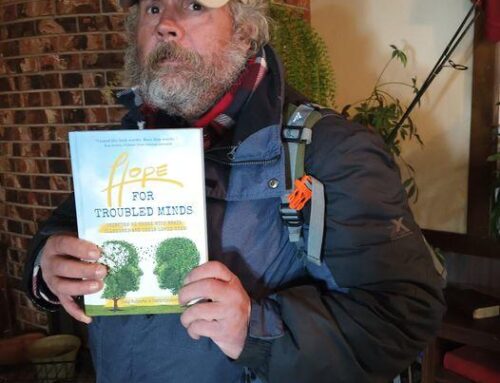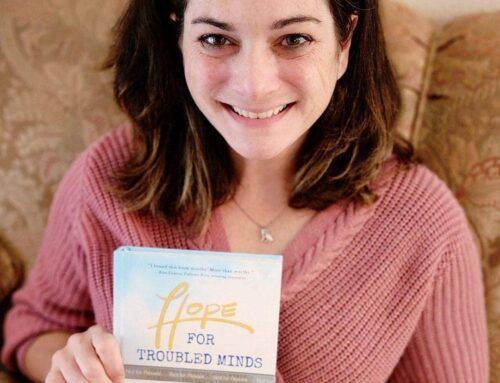{from Ken Kesey’s One Flew Over the Cuckoo’s Nest}
[Nurse Ratched] reached in the basket for the log book. “Must we go over past history?”
That triggered something, some acoustic device in the walls, rigged to turn on at just the sound of those words coming from her mouth. The Acutes stiffened. Their mouths opened in unison. Her sweeping eyes stopped on the first man along the wall.
His mouth worked. “I robbed a cash register in a service station.”
She moved to the next man.
“I tried to take my little sister to bed.”
Her eyes clicked to the next man; each one jumped like a shooting-gallery target. “I—one time—wanted to take my brother to bed.”
“I killed my cat when I was six. Oh, God forgive me, I stoned her to death and said my neighbor did it.”
“I lied about trying. I did take my sister!”
“So did I! So did I!”
“And me! And me!”
It was better than she’d dreamed. They were all shouting to outdo one another, going further and further, no way of stopping, telling things that wouldn’t ever let them look one another in the eye again. The nurse nodding at each confession and saying, Yes, yes, yes.
Kesey’s depiction of Nurse Ratched revealed abuses of power, mind control, inhuman manipulation that had gone unnoticed or passively permitted within psychiatric institutes for generations. Cuckoo’s Nest sparked a movement that led to massive hospital closings and the release of countless “patients” into what was hoped to be a better world — the outside community.
But the better world envisioned was not real. Decades later, we are still dealing with what is the harsh reality that persons with serious mental illnesses have not been provided safe places to live. Given this, the vast majority wind up in a serial cycle of temporary shelters which provide next to no treatment for their condition. A few nights on the psych unit. The streets. Jail. Prison. There is no where to turn, no good place to go.
Our modern situation has prompted many in the mental health community to cycle back and wonder what might be learned from psychiatric hospitals of the past. What worked? What didn’t work? What was humane? What was unacceptable? Some of my friends with mental illness are shocked to hear the discussion is even going on. They see such things as Cuckoo’s Nest and come to believe all hospitals, all nurses, all medications are as wicked as these. Many are concerned about the loss of individual freedom. Sure, there is a mental health crisis in the world today. But I can still do what I want. Come and go as I please.
One thing that needs to be addressed if we are going to move forward toward better treatment of persons with mental illness is the myth of absolute freedom. Yes, we make choices. But choices have consequences. And some consequences are worse than others. Some consequences are deadly.
I have found that my faith puts my freedom in perspective. I am not free from so much as I am free for. To put it in psychological terms, freedom for folks with mental illness is not so much the self-destructive demon of our illness, it is the ability to seek and find better care that makes us more fully human.
Nurse Ratched should serve not as a deterrent to providing long-term care in a place set aside for the needs of people with serious mental illness. Particularly if they are on a merry-go-round of psych unit/streets/jail/prison. We need to provide something resembling home for all persons, regardless of their mental health condition. Nurse Ratched should instead motivate us with a sense of urgency to recruit, train, and equip caregivers to do precisely what they are called to do.
Discover more from Delight in Disorder
Subscribe to get the latest posts sent to your email.








